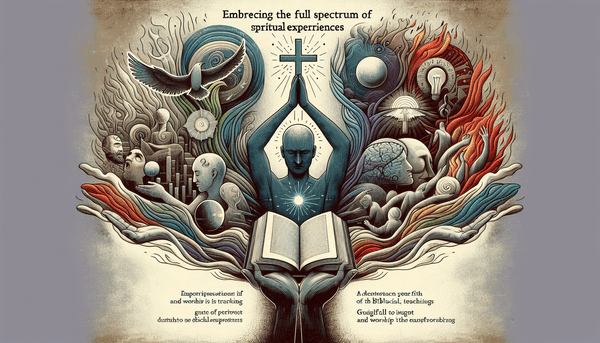Coping with Chronic Pain through Scripture
For those who suffer from chronic pain, the Bible provides passages that offer comfort and a sense of community. The book of James encourages us to seek spiritual support, saying, 'Is anyone among you sick? Let them call the elders of the church to pray over them and anoint them with oil in the name of the Lord' (James 5:14). This verse is a powerful reminder of the communal nature of healing and the strength we can find in the prayers of others. Moreover, the apostle Paul shares with us his own experience with suffering, where he finds solace in the grace of God: 'My grace is sufficient for you, for my power is made perfect in weakness' (2 Corinthians 12:9). These words encourage us to embrace our vulnerabilities and trust in God’s sustaining power through our pain.
The Role of Confession in Forgiveness
Forgiveness is central to the Christian faith, and confession plays a pivotal role in this process. The act of confession is more than simply admitting wrongs; it involves a heartfelt recognition of our sins and the impact they have on others. 1 John 1:9 assures us that 'If we confess our sins, he is faithful and just and will forgive us our sins and purify us from all unrighteousness.' James also highlights the importance of confession for healing, urging us to 'confess your sins to each other and pray for each other so that you may be healed' (James 5:16). Through confession, we open the door to forgiveness, not only from God but also from those we've wronged, paving the way for reconciliation and healing.
Resisting Temptation in a Modern World
In today's society, the allure of material possessions, status, and pleasure can be overwhelming, leading us away from spiritual growth. The Bible warns us against such temptations, with John cautioning that 'the lust of the flesh, the lust of the eyes, and the pride of life comes not from the Father but from the world' (1 John 2:16). To combat these temptations, we are encouraged to turn to God, as James advises, 'Submit yourselves, then, to God. Resist the devil, and he will flee from you' (James 4:7). By focusing on the purity of heart and mind, as outlined in Philippians 4:8, and surrounding ourselves with a community of believers, we can find the strength to resist the snares of a world that often values the temporal over the eternal. For deeper insight into the nature of God's holiness and the call to live righteously, explore our related discussion at Exploring Biblical Narratives: Holiness, Incarnation, and Righteousness.
Enjoying the World Without Loving It
While we are called to enjoy God's creation, we must also be cautious not to let the world's pleasures become our master. The Scripture reminds us to 'love not the world, neither the things that are in the world' (1 John 2:15). This does not mean we should shun all worldly joys, but rather, we should maintain a healthy balance, seeking contentment and simplicity as Jesus taught in Luke 12:15. By prioritizing spiritual pursuits and finding fulfillment in following Christ, as described in Matthew 5:6, we can enjoy life without becoming ensnared by the trappings of a world that is passing away.
Conclusion
The journey through the challenges of life can often be daunting, but the Scripture offers us a beacon of hope and a source of strength. As we have explored, the Bible provides guidance and encouragement for coping with chronic pain, embracing the process of forgiveness, resisting temptation, and finding joy in the world without becoming attached to it. May we continue to draw upon the wisdom found in God's Word, letting it guide us toward a life marked by spiritual depth and fulfillment. Let us close with an invitation to prayer and an ongoing dialogue with the divine, for 'You will seek me and find me when you seek me with all your heart' (Jeremiah 29:13).
FAQ
Q: What is the role of confession in the act of forgiveness?
A: Confession is an important step in the process of forgiveness, as it involves acknowledging one's mistakes or sins before God and those affected. It shows an acceptance of responsibility and a desire for reconciliation with God and others.
Q: What does loving the world mean in today's society?
A: Loving the world can mean an overemphasis on material possessions, wealth, and status, as well as a pursuit of pleasure at the expense of spiritual growth. It also includes excessive attachment to social media and external appearances, reflecting a prioritization of worldly desires over the will of God.
Q: Can you provide examples of the lust of the flesh and the pride of life?
A: The lust of the flesh often involves excessive physical indulgences, such as gluttony or sexual immorality. The pride of life refers to an overbearing sense of self-importance and obsession with one's status or achievements. Both are contrary to living a life in alignment with spiritual values.






